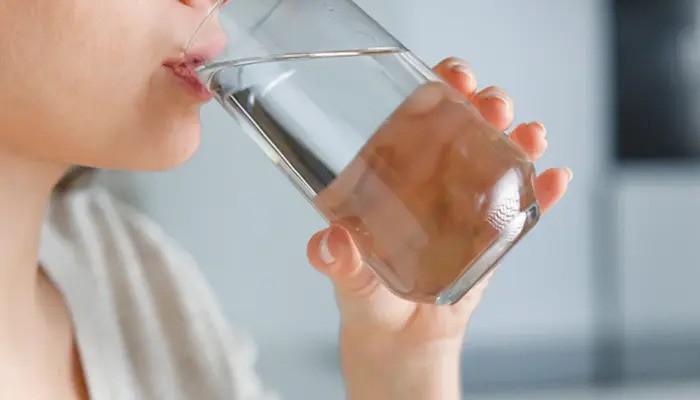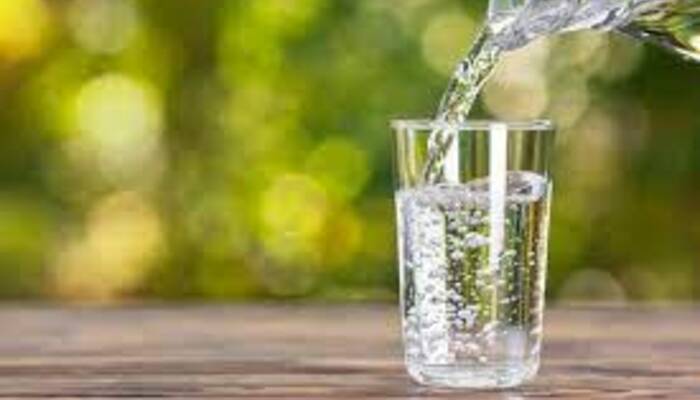
Most of us know that water is essential for survival, yet few realize that it’s possible to drink too much. The constant reminders on social media, health blogs, and fitness apps have created a culture of overhydration. While proper hydration supports every system of the body, excessive intake can lead to serious health problems. This article explains how overhydration happens, the warning signs to watch for, and how to find a safe balance.
Why Too Much of a Good Thing Can Be Harmful
Water sustains life by transporting nutrients, regulating temperature, and protecting organs. However, when you drink excessive amounts in a short period, you risk developing a condition called water poisoning. This happens because the normal balance of electrolytes in your blood—especially sodium—becomes dangerously diluted.
Medical researchers call this state hyponatremia. As sodium levels fall, water rushes into cells and causes them to swell. When the swelling affects brain cells, the results can be catastrophic. Seizures, confusion, coma, and even death may occur if the pressure inside the skull becomes too great.
The Myth of Eight to Ten Cups a Day
You’ve probably heard the advice to drink eight to ten cups of water every day. Health experts say that’s too simplistic. Your true needs depend on your weight, activity level, climate, and diet. Someone who runs outdoors in the heat may need far more than a person working at a desk in an air-conditioned office.

According to the U.S. National Academies of Sciences, Engineering, and Medicine, adequate fluid intake is about 3.7 liters (15.5 cups) for men and 2.7 liters (11.5 cups) for women. But here’s the crucial point: only 35% to 54% of that total should come from plain water. The rest can—and should—come from other beverages and foods rich in water.
Signs You Might Be Overhydrating
Knowing the symptoms of overhydration can protect you from dangerous consequences. Here are key indicators:
Headaches From Low Sodium Levels
Most people know dehydration can cause headaches, but few realize overhydration can do the same. When blood sodium drops, cells—including brain cells—swell, pressing against the skull and triggering pain.
Colorless Urine Isn’t Always Healthy
Contrary to popular belief, completely clear urine isn’t a gold star for hydration. Experts such as Dr. Jennifer Caudle at Rowan University warn that colorless urine may indicate you’re flushing out too much sodium. Healthy urine is usually straw-colored to light yellow.
Swelling in Hands, Lips, and Feet
With hyponatremia, cells swell throughout the body. Mild cases show up as puffiness or bloating in extremities. Severe cases may involve visible discoloration and rapid weight gain due to fluid retention.
Frequent Urination and Nighttime Trips
The average person urinates six to ten times daily, according to urologist Dr. Austin DeRosa. If you’re going more than ten times—or waking up repeatedly at night without another medical reason—you may be overhydrating.
Digestive Issues and Nausea
When kidneys can’t excrete excess water quickly enough, symptoms like nausea, vomiting, and diarrhea may develop as your body tries to rebalance itself.
Muscle Cramps and Fatigue
Low electrolyte levels caused by overhydration can trigger muscle spasms, cramping, and unusual fatigue. In extreme cases, these symptoms precede more serious neurological problems.
How Overhydration Stresses the Kidneys and Bladder
Your kidneys filter excess water to keep your bloodstream balanced, but they have limits. Flooding them with too much liquid at once increases hormone release and stress on these organs. Over time, this can weaken your bladder muscles. People who overhydrate often try to “hold it” to avoid constant bathroom trips, but holding too much can stretch the bladder and even cause leakage.
What Really Counts Toward Your Daily Fluid Intake
Hydration isn’t only about plain water. In fact, about 20% of daily fluid intake comes from food, says the Harvard T.H. Chan School of Public Health. Fruits and vegetables such as lettuce, cucumbers, bell peppers, summer squash, celery, berries, and melons are naturally hydrating. Soups, yogurt, and smoothies also contribute to your fluid balance.
Even beverages like coffee and tea count toward hydration. Research shows caffeine doesn’t dehydrate you the way many people think. Because coffee and tea start as water, they still support your fluid needs. Milk adds protein and calcium, and pure fruit juices supply vitamin C and other nutrients.
Read more: US Dollar Hits Record ₹88.43 Against Indian Rupee
Smart Strategies to Prevent Overhydration
You don’t have to stop drinking water to stay safe—you just need to listen to your body. Here’s how:
Follow Thirst Cues: Drink when you’re genuinely thirsty rather than out of habit.
Monitor Urine Color: Aim for pale yellow, not colorless.
Adjust for Activity and Weather: Increase water intake on hot days or during exercise, but scale back on cooler, sedentary days.
Balance with Electrolytes: Replace a couple of glasses of plain water with coconut water or other natural electrolyte drinks if you’re highly active.
Don’t Ignore Food’s Contribution: Factor in fruits, vegetables, soups, and other fluids you consume before refilling your water bottle.
Who’s Most at Risk of Overhydration
While anyone can drink too much water, some groups are more vulnerable:
Athletes and endurance competitors who overcompensate during events.
People on medications that affect kidney function or sodium balance.
Workers in high-heat environments who drink excessive water without replenishing electrolytes.
Health-conscious individuals who constantly sip water because they’ve internalized hydration myths.
Finding Your Personal Hydration Balance
The bottom line: staying hydrated is essential for good health, but there’s no one-size-fits-all number of cups. Your ideal intake depends on your body, environment, and lifestyle. Pay attention to how you feel, what you eat, and how often you urinate. If you’re swelling, feeling fatigued, or waking up multiple times at night, it’s time to reassess your water habits.
Health authorities agree that there’s no official recommended dietary allowance for water. But when you combine water with other beverages and foods, most adults do just fine with four to six cups of water for women and five to eight cups for men each day.
The Takeaway
Hydration isn’t a contest, and more isn’t always better. Drinking excessive amounts of water can dilute your blood sodium, stress your kidneys, and lead to dangerous symptoms. By tuning into your body’s signals and recognizing the signs of overhydration, you can protect your health and still enjoy the benefits of proper fluid balance.
Water is life, but balance is survival.
Follow us on Instagram, YouTube, Facebook,, X and TikTok for latest updates




